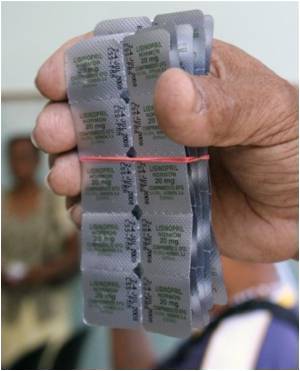All thanks to media and communications, there has now been a huge awareness about the importance of a proper diet and having all nutritional elements as a part of the meal to maintain optimum health. Even the layman today is aware about the benefits of omega 3 fatty acids, the difference between good and bad cholesterol and which foods contain them.
With this awareness, there is also a steady increase in the number of new brands introducing nutraceuticals and vitamin supplements. Though these vitamin and mineral supplements can prove to be amazingly convenient and useful, especially for those suffering from a certain deficiency condition, or merely just for supplemental purposes, at times, an overuse can prove to be problematic.Firstly, let's list down the points to keep in mind while taking a vitamin or a mineral supplement.
• Food first: Taking vitamin supplements doesn't give you the liberty of indulging in whatever you want, and then popping a pill as compensation. Supplements are merely tools that fill up the gaps in your diet that signify a lack of a particular nutritional element. Infact, it's not the pill, it’s the food on your plate that’s your ticket to good health.
• Grab the veggies: Vegetables and fruits are more than enough to make up for your mineral and vitamin needs. So always try to stick to the natural side, and when at the supermarket, grab fresh fruits and vegetables rather than a stack of different vitamin bottles; it’s tastier too!
• When in doubt, choose a multivitamin: If you’re on the lookout for something to supplement your daily diet, choose single multivitamin capsule rather than a cocktail of individual vitamins and minerals. That way, you'll be safe from the possibility of getting an overdose of vitamins.
• Take it slow: An overdose of anything, even vitamins can be toxic to health. That's why it's really important to respect the upper limit of your vitamin dosages, and stick to them. Check for the DV (daily value), AI (adequate intake), RDA (recommended dietary allowance) and UL (tolerable upper intake level) on the label of the supplement you intend to take, and follow that value.
• Remember the risky ones: It's true. An overdose of certain vitamins and minerals is more risky than the others. For example, excess of selenium and iron can be harmful to the body, and an overdose of vitamin A and fat soluble vitamins E and K can build up in the body and lead to toxicity.
The Sorting:
Beta carotene - Easily available through food sources like spinach and carrots, an overdose of beta carotene is thought to increase the risk of lung cancer in smokers.
Folic acid - Responsible for playing an enormous role in preventing birth defects, folic acid is usually recommended only for pregnant women. Some doctors suggest that folic acid fuels the risk of colon cancer.
Selenium - Thought to prevent prostate cancer, selenium supplements taken in excess can harm your body.
Vitamin C - Most people don't really need to take vitamin C supplements, though, taking it is known to reduce the risk of heart disease and cancer.
Vitamin E - Vitamin E is known to play a huge role in preventing Alzheimer's, heart disease and cancer. A higher dose, however, could increase the risk of strokes. Take with caution.
Zinc - Used to prevent common cold, zinc supplements taken in excess can weaken the immune system.
Source-Medindia














